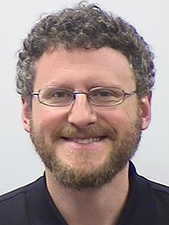Takeaway
Toddlers offer invaluable lessons for healthcare professionals. By embracing curiosity and focusing on the present, clinicians may enhance patient care, reduce burnout, and improve overall well-being.

Lifelong learning in clinical excellence | August 7, 2024 | 2 min read
By Jonathan Reisman, MD, Cooper University Health Care
Toddlers are widely considered to be stubborn, impulsive, and constantly putting themselves in mortal danger if they’re not watched like a hawk. As healthcare professionals we think of toddlers as empty vessels who need to be taught everything about life—and we certainly don’t think of them as fonts of wisdom or sources of guidance. But in the book “Sleep Well, Take Risks, Squish the Peas” by Dr. Hasan Merali the typical script is flipped when it comes to young children. He asks what all adults can learn from toddlers. It turns out we can learn quite a bit from the natural inclinations of these remarkable children, who Merali calls “The best people in our society.”
The book is many things at once: a guide for parents raising a toddler and instilling healthy habits; it’s also a guide for healthcare professionals counseling parents on how to properly raise a toddler; finally, it’s a self-help guide for healthcare professionals to find a better work-life balance and live a happier life despite sometimes feeling stressed and over-worked.
In exploring the lessons toddlers have to teach us, Merali draws on several decades of research in child psychology and development, his own experience as a father raising a toddler, and his career as a pediatric emergency medicine doctor. He dives deep into toddlerhood, a difficult period of childhood, and comes up with universal lessons that we should all follow in order to get “gold stars” in life. Examples include advice for a better home life: the importance of kindness, laughing, giggling, sleep hygiene, and unstructured play time. Other advice focuses on our workplaces: the power of teamwork, mentorship, and respect.
In one of the book’s more charming anecdotes, Merali analyzes a viral video of a young girl snowboarder who’s recorded talking and singing to herself as she snowboards down the mountain. From this reflection and analysis of psychology literature, he puts together a lesson on the benefits of talking to yourself to improve motivation, focus, and problem solving.
This book has double utility: it provides advice pediatricians can use in caring for toddlers and advising parents who care for toddlers, as well as also gives a healthcare professional advice for their own work-life balance, happiness, and overall enjoyment of life. Each chapter ends with a list of “Toddler Teachings” that could easily double as a pediatrician’s advice for raising toddlers, as an internist’s advice for adult patients, and for physicians of any specialty to improve their own lives and reduce stress. Among the valuable advice in this book are the following:
1. Eat when hungry, not for any other reason.
2. Turn screens off one hour before bedtime, and don’t forget that naps are for winners.
3. Recognize the power of small, informal acts of kindness.
4. Make reading a daily habit.
These are just a few of the valuable pieces of advice in this book that are geared to people of all ages and physicians at any stage of their career.
This piece expresses the views solely of the author. It does not necessarily represent the views of any organization, including Johns Hopkins Medicine.

